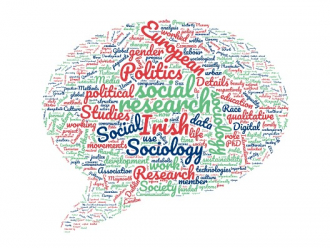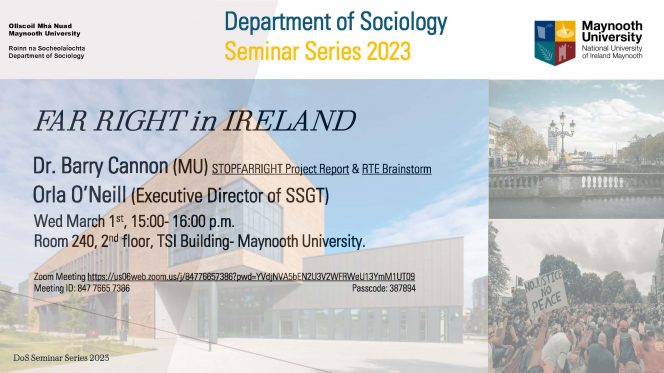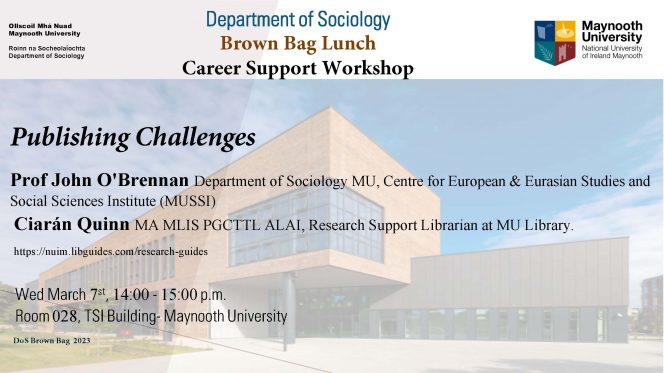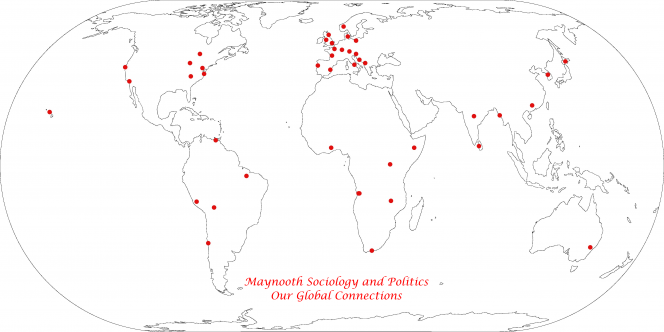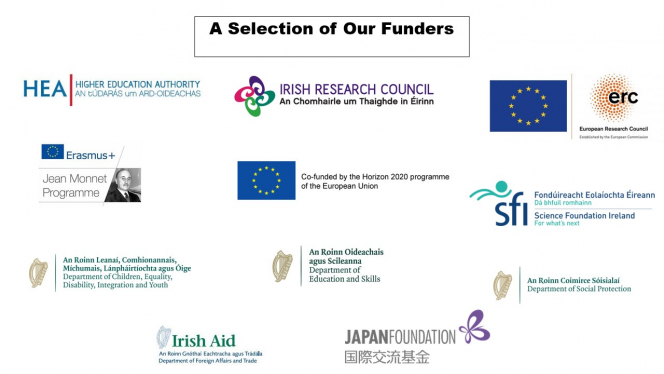Critical Political Thought, Activism and Alternative Futures
The primary aim of this research cluster is to subject existing configurations of power to critical questioning, and to explore the roles of radical theory and social activism in generating alternative futures based on such principles as equality, direct democracy, autonomy and social and environmental justice. In keeping with the spirit that animated its creation, this research cluster is decidedly activist-oriented. All of the members of the research cluster are students of social activism in one form or another, and our varied understandings of the means and ends of social change are informed by our practical participation in a wide range of campaigns and social movements. At the same time, we regard ourselves as critical intellectuals faced with the frequently contradictory tasks of pursuing the truth, joining truth to power and opposing truth to power.
While the members of the research cluster approach the subject matter from a wide range of political perspectives, we are united by our common desire to promote free and critical thinking that is linked to democratic social movements and points towards an alternative social order. Research themes of particular interest to cluster members include contemporary anti-capitalism and the global justice movement, anarchism and the politics of utopia, Marxism, feminism, green localism, sexual politics and the politics of masculinity, critical pedagogy and popular education, counter-cultures, working-class studies, political violence, class and gender politics in contemporary Northern Ireland, and post-Celtic Tiger Ireland.
Academics working in this area include:
Laurence Cox (cluster co-ordinator)
Mary Murphy
Aileen O’Carroll
Theresa O’Keefe
Colin Coulter
Globalisation, Identities, Institutions and Cultural Practices
This research cluster is interested in how the process of globalisation manifests itself transnationally, locally and regionally in terms of identity formation, political institutions and cultures. The group is united in their interest in exploring how identities (gender, ethnicity, race, religion, class and sexuality), communities and cultural practices (from popular culture and the global media industry to everyday lived experiences and practices) and institutions (local, national, supranational) are shaped by global processes and geo-political shifts.
Members of the group have research interests in cultures and counter cultures, mass and new media, the culture and politics of love, representation and performance, multiculturalism and migration, social cohesion and social conflict, commodification, consumerism, coalition building, collective identity, racialisation, social and political mobilisation, religion and social change, and the relationship between state identity and interests within EU and global contexts. These interests are explored in everyday and virtual environments and local, regional, national and transnational contexts. Members are also engaged in and committed to exploring the policy and political implications of their research.
The group would welcome staff and postgraduate members from other departments and disciplines with an interest in these topics and who are willing to engage in seminar discussions, reading groups, writing workshops and potential collaboration on research projects.
This research cluster aligns with the ‘Human Cultures, Experience and Creativity’ university research theme.
Cluster coordinator: Pauline Cullen
Cluster staff members: Rebecca King-O'Riain, Aphra Kerr, Pauline Cullen, Delma Byrne, Brian Conway and Paul Ryan.
Historical and Comparative Sociology
This research cluster is concerned with how social change unfolds across different countries and geographical spaces. Its members are brought together by a common interest in understanding social change through the comparative historical study of such things as rural economic organisation, religious belief systems, modern households and families, political economy, social movements, and European enlargement processes, as well as discussing the methodological satisfactions and challenges of doing comparative/historical research
Academics working in this area include:
Eamonn Slater (cluster co-ordinator)
Brian Conway
Laurence Cox
Jane Gray
John O’Brennan
Seán Ó Riain
Political Economy, Work and Social Inequality (PEWSI) Cluster
The primary aim of this research cluster is to explore the relationship between political economy, work and working lives, and social inequalities. Our research is rooted in a variety of theoretical perspectives but begins from a recognition of: the social embeddedness of market structures and action; the importance of social relations and social institutions in work, welfare and organisations; and the critical significance of processes of power and inequality as fundamental elements of economic life. Members of this research group are involved in a range of events, discussions and research seminars.
Key themes include: Changing Nature of Work, Institutions, Welfare and Labour Markets, and Dynamics of Inequality.
We investigate various lines of division and inequality, including: Disability, Gender, Age, Class, Race, Ethnicity, LGBT and Religion.
Déanann an Ghrúpa Taighde um Eacnamaíocht Pholaitiúil agus Cúrsaí Oibre in Ollscoil Má Nuad iniúchadh ar réimse leathan cheisteanna maidir le athruithe in eagrúchán ionaid oibre, fostaíocht, forbairt eacnamaíochta, institiúidí sóisialta and polaitíochta agus cúiseanna na h-éagothroime. Le baill ó raon leathan de ranna acadúla a úsáideann modhanna taighde éagsúla, tá an ghrúpa lonnaithe idir an Roinn Socheolaíochta agus Institiúid Eolaíochtaí Sóisialta Ollscoil Mhá Nuad (MUSSI). Tá an Bhaisle Taighde dírithe ar thrí ábhair ar leith: Institiúidí, Stát Leasa agus Margaí Fostaíochta; Treochtaí agus Cúiseanna na h-Éagothroime; agus Athraithe in Ionaid Oibre.
Sociology staff working in this area include:
Sean Ó Riain (cluster co-ordinator)
Mary Murphy (cluster co-ordinator)
Delma Byrne
Pauline Cullen
Jane Gray
Aphra Kerr
Peter Murray
Linda Connolly (MUSSI/Sociology)
Staff from other Departments in Maynooth University:
Tatiana Andreeva – Business
Jean Cushen - Business
Michael Doherty - Law and Government
Marion Henry Crowley – Business
Kylie Jarrett - Media
Joe Larragy - Applied Social Studies
Anne O'Brien - Media
Aileen O’Carroll – MUSSI/DRI
Postdoctorates, Postgraduates and Visitors:
Francisco M. Arqueros-Fernandez - Sociology
Amelia Dulee-Kinsolving - Law/Sociology
Philip Finn – Sociology
Patrick Gallagher - ERC/New Deals
Mary Hyland – Law
Ivan Privalko - ERC/New Deals
Fergal Rhatigan - Sociology
Pablo Rojas Coppari - Sociology
Nuala Whelan – Psychology/Sociology
Josh Moody - Sociology
Research Project Links:
New Deals Project: http://newdeals.maynoothuniversity.ie/
Urban/Suburban Studies
Our research goals are to integrate empirical engagement with everyday life in urban, rural and suburban contexts with contemporary theoretical debates in the humanities and social sciences. One of the strengths of this research cluster is that our work lies at the intersection of a broad church of disciplines including art, planning, architecture and photography. Our aim is to build bridges to these disciplines and extend the reach of our sociological work on (sub) urban processes and practices.
Academics in Sociology working in this area include:
Mary Corcoran (cluster co-ordinator)
Jane Gray,
Eamonn Slater
